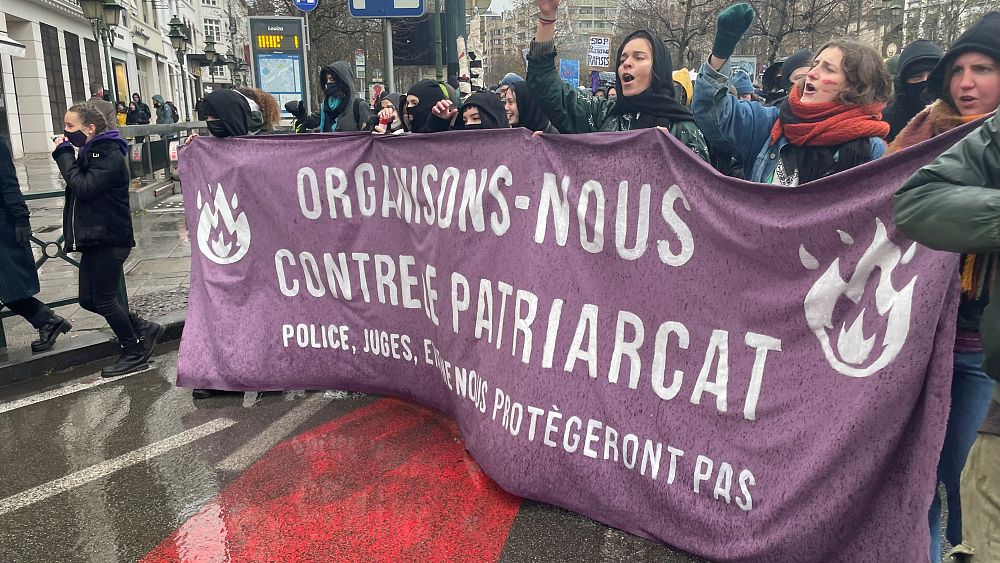
Thousands of protesters in the Belgian capital took to the streets on Sunday to demonstrate against violence towards women.
Between 5,000 and 8,000 joined the protests on Sunday afternoon in Brussels, according to the Mirabel platform, which represents dozens of civil society organisations.
Balance Ton Bar was one of the many movements protesting, set up earlier this year to help survivors of sexual assault voice their experiences anonymously – similar to the MeToo movement – after a male bartender working in the Belgian capital was accused of drugging and sexually assaulting multiple women.
Maïté Meeus, who started the Balance Ton Bar movement said that men should be educating themselves better on the issue.
“We’re waiting for men to be allies and take a proactive stance in this fight,” Meeus told Euronews.
“We want men to educate themselves and reach out to places that can be a resource for that education. So that’s what we are waiting for.”
Other feminist organisations, including the Inclusive Feminist Union (UFIA), say more needs to be done to support and listen to victims.
“We demand that [the] police are more understanding,” Laura from UFIA said.
“It is crazy that the survivors use the Instagram accounts of activists to tell their story rather than to try for real justice and to denounce all that is going on.”
“Women have to [be able to] live in a safe society and in that safe society we have to build it with men, we have to build it with women, we have to build it with migrants – we have to build it with the whole of society,” said Frédéric, one of the many men on the protest.
Belgium announced one day previously that it was adopting a National Action plan for the Fight against Gender-Based Violence. It includes up to 200 measures and brings together all levels of government.
Laurence Zanchetta, a Member of the Belgian Federal Parliament told Euronews that a key part of this will be training the police to be better equipped to deal with complaints or allegations of violence or sexual assault against women.
“The important thing, and it must be said, is the training – the training of the police officers who will receive the complaints because it is necessary since 70% of the complaints are filed without being followed-up,” Zanchetta said.
“This means that the woman is left with no answer and a great sense of injustice.”